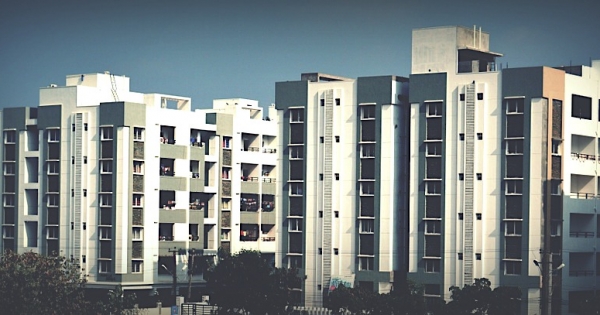
Believing that real estate development and housing types only change the physical aspect of the city, without sizing its social impact on people’s well-being and neighborhood life, is a myopia. That’s why it’s important to get it right.
Densification has the opportunity to reduce serious segregation problems, allowing more families to access areas with urban equipment and good connectivity.
The proposal for a Law on Social Integration also proposes, encouraging densification to generate affordable housing in well-located areas. However, according to the latest data from the City with All: Dialogue project for a Balanced Densification, only 2.5% of new homes purchased in the Metropolitan Region during 2018 had an affordable price for 40% of the population with children Income.
In central communes of Santiago, the offer of new homes is mainly focused on one bedroom apartments, which is not always according to the needs of those who inhabit these communes. It is no coincidence that in three communes of the capital (Independencia, Estación Central and Santiago), more than half of the homes purchased during 2018 were one bedroom.
So who are we really densifying for? Is the current densification contributing to social integration?
More precisely, what the numbers show today is that homogeneous neighborhoods are developing, losing their wealth and that the real estate supply does not conform to the need of the inhabitants of the most central communes. This helps to expel from the commune those who do not have the resources to access the definitive home, and to incentivize the lease, possibly precarious, generating situations of family allegation and overcrowding for those who, by staying in the commune, try to adapt to an inaccessible and non-representing offer.
Rather than demonizing the real estate sector that, as we witness, has shown wanting to understand and contribute to a more responsible and informed discussion about densification, these data seek to contribute to a critical discussion. We seek that “social integration” is not used as a pretext to unbalancedly densify, and thus contribute to the development of public policies that improve the social urban context and move towards a housing supply that puts people and their needs at the heart of development.
The content poured into this opinion column is the sole responsibility of its author, and does not necessarily reflect the editorial line or position of El Mostrador.
"El reclamo puede ser genuino, pero construido sobre una mentira", apuntó el presidente Javier Milei…
El gobernador de la provincia de Buenos Aires, Axel Kicillof, encabezó un acto en Ensenada…
El diputado nacional de La Libertad Avanza, José Luis Espert, expresó su confianza en la…
Tras la masiva reaparición de Cristina Fernández de Kirchner, el presidente Javier Milei apuntó contra…
El principal propósito de la nueva comisión es evaluar los recursos humanos en el Senado,…
En una medida que busca redefinir las condiciones de los seguros de automóviles en Argentina,…
Esta web usa cookies.